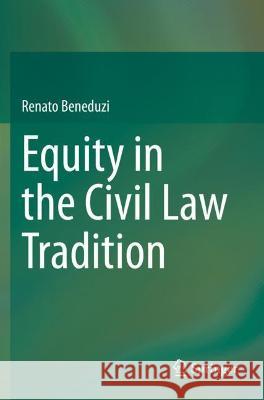Equity in the Civil Law Tradition » książka
Equity in the Civil Law Tradition
ISBN-13: 9783030780692 / Angielski / Miękka / 2022
This is a book on “equity in the civil law tradition” from the double perspective of legal history and comparative law. It is intended not only for civil lawyers who want to better understand the role and history of equity in their own legal tradition, but also – and perhaps more saliently – for common lawyers who are curious about why the history of equity has unfolded so differently on the continent of Europe and in Latin America.The author begins with the investigation of the philosophical foundations of the Western notion of equity in the teachings of Plato and Aristotle and of how their ideas affected the works of the great Attic orators (chapter 2). He then addresses the way in which Roman law turned this notion into a legal concept of considerable practical importance (chapter 3) and how it survived the fall of Rome and was later elaborated in the Middle Ages by civilists and canonists (chapter 4). Subsequently, the author analyses how the notion of equity was dealt with in the Modern Era by legal humanists, Protestant and Catholic theologians, scholars of the usus modernus pandectarum and of Roman-Dutch law, and then by legal rationalism and the philosophers of the Enlightenment (chapter 5). He then deals with the history of equity on the continent since the fragmentation of the ius commune and the codifications of the nineteenth century and with its reception in Latin America (chapter 6). Finally, the author offers some closing remarks on the fundamental equivocalness (or relativity, as some scholars put it) of the notion of equity in the civil law tradition today (conclusion).











